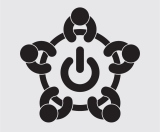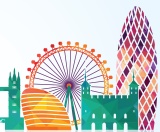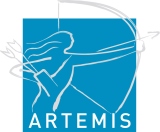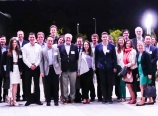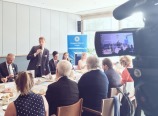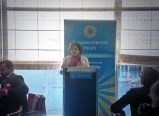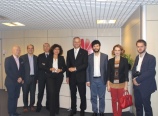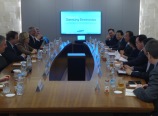How to create the right ecosystem for top ICT hubs: highlights from the EIF Study Visit to Berlin
View all news items14 October 2013
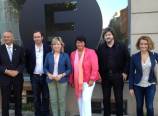
A delegation of 4 Members of the European Parliament (Pilar del Castillo, Lambert van Nistelrooij, Sabine Verheyen and Joachim Zeller) participated in an EIF Study Visit to Berlin between 5 and 7 September 2013.
The programme of the visit was aimed at offering EIF Political Members a real hands-on experience of today’s state-of-the-art technologies and R&D sites within the European Union, as well as a deeper understanding of the conditions that allow the development of the appropriate ecosystem, with a reflection on the role of policy-makers.
Why Berlin
Berlin is a vibrant and multicultural city, with lively musical and cultural scenes that can easily attracts youngsters from elsewhere in Germany or outside Germany (English is widely spoken). Cheap rent prices make it all the more appealing.
With an average of 700 high-tech companies registered every year, Berlin has developed a dynamic start-up ecosystem and has become one of the hottest start-up capitals in Europe.
Festivals and events where start-ups can show their ideas and meet potential investors or mentors are very recurrent, such as the ‘The Long Night of Start-ups’, which the delegation has also attended.
The Factory
The delegation started off their visit with a meeting at The Factory, where Simon Schaefer, one of the founders, presented the highlights of this ambitious project. The Factory is a 16.000 square meters campus being built with the aim of bringing together established Internet companies (e.g. Mozilla, SoundCloud and 6Wunderkinder) and new start-ups in a stimulating environment with all sort of facilities. The Factory is in partnership with Google for Entrepreneurs and offers to some extent free consulting and training to the new entrepreneurs as well. Although the city administration was very supportive to this project, the Factory has not received any government or public aids due to the long waiting times this would entail. The hope is that start-ups growing at the Factory will be able to scale within Europe without leaving for the US. For more information and a video tour of the Factory, click here.
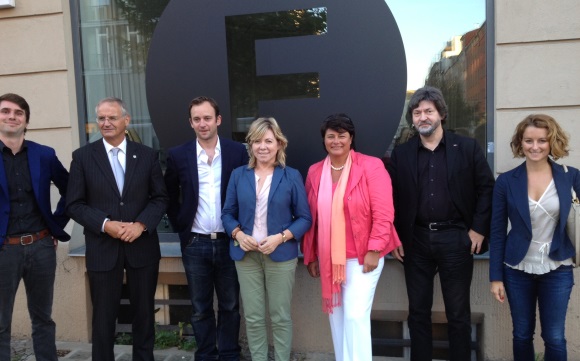 |
From right to left: Maria Rosa Gibellini (EIF Director), Joachim Zeller MEP, Sabine Verheyen MEP, Pilar del Castillo MEP, Simon Schaefer (Factory co-founder), Lambert van Nistelrooij MEP and Sandro Gianella (Google).
The Hasso Plattner Institute
The visit continued with the Hasso Plattner Institute (HPI) in Potsdam, which is Germany’s university excellence centre for IT-Systems engineering. It was founded in 1998 by Hasso Plattner - one of the founders of SAP - with the aim of educating future international leaders in this sector. All German universities are State-owned and HPI is not a private university either: it is connected to the University of Potsdam as an ‘attached institute’. However, HPI does not receive any public funds and students do not pay any fees: its only source of funding is the non-profit HPI Foundation. Visiting MEPs had the opportunity to exchange views with HPI’s President and CEO Prof. Christoph Meinel to better understand how this exceptional university centre educates future entrepreneurs. The HPI is trying to make a difference in the German university scenario not only as an excellent technological research centre but also as a business-oriented university. 2 thirds of university graduates in Germany would prefer being hired in the public sector rather than becoming an entrepreneur. HPI tries to play a role in changing this mindset.
MEPs were also showed the new online learning platform on which the HPI runs massive open online courses (MOOCs), reaching out to more than 13.000 students all over the world - openHPI.
T-Labs and Hub:raum of Deutsche Telekom
The next appointment was at Deutsche Telekom’s facilities to know more about T-Labs and Hub:raum, Deutsche Telekom’s initiatives to creating and supporting ICT-related startups with capital, office facilities and infrastructures. The EIF Delegation visited their premises and spoke with many senior Deutsche Telekom representatives.
With its R&D profile, T-Labs is a public-private partnership that reinforces the long-term innovative strength of Deutsche Telekom – which funds them – and acts as a driver and initiator for excellent research in an international partner network with leading experts and institutions. As a university-affiliated institute, T-Labs cultivate future competencies and tests and apply new methods and approaches. All T-Labs’ R&D projects are aimed at developing innovative products and services for Deutsche Telekom customers. The results of this research and development are primarily transferred to Deutsche Telekom’s strategic business units or are used to establish spin-offs. Future Wallet is one of them. The delegation was shown how mobile payments possibilities are not limited to NFC: a mobile wallet can contain also loyalty cards, bus tickets and even car keys, in the name of ‘convergence’. Safety will be key for building trust in this technology.
Another example of T-Labs projects are Trust2Core and Litedesk. The first developed a secure mobile communications system based on microkernel technology. The German government has been the first client of this start-up. With their system an open private platform can coexist for the first time with a secure professional platform with sensitive data, on the same device.
Litedesk offers highly secure cloud computing services specially designed for businesses and remote working.
Hub:raum connects Deutsche Telekom with the innovative start-up ecosystem and has 3 programs: Incubator, Accelerator and Fit4Europe. Hub:raum’s incubator has received 150 applications this year. Only 50% of the start-ups are from Germany in average. The selection of applicants follows high-standard criteria and validation with experts. Hub:raum offers initial financing, mentoring, co-working and Deutsche Telekom’s network for a start-up new product. This is Deutsche Telekom’s way to invest and scout new ideas and talents. The accelerator helps developing a sound business model and the Tel-Aviv-based Fit4Europe programme helps prepare start-ups to scale within the European market. 6 start-ups are currently being incubated at Hub:raum.
EIT ICT Labs Berlin Node
The delegation moved then to the facilities of the EIT ICT Labs, which are located in the same building as Deutsche Telekom. The EIT ICT Labs are a Knowledge and Innovation Community (KIC) selected by the European Institute of Innovation and Technology (EIT). The German department collaborates with various partners including Deutsche Telekom, SAP and Siemens. Upon arrival, EIT’s Video Café - an intelligent video-audio tool with which one EIT location communicates live with other locations ‘over a cup of coffee’ - caught the MEPs’ attention as they enjoyed the interaction with EIT staff in front of the camera in other locations. The EIT ICT Labs’ CEO Willem Jonker joined the Video Café from Eindhoven and MEPs took the chance for some questions. The conversation went on with present EIT Berlin representatives about education and innovation in Europe, with a focus on the role of start-ups in the European and German ecosystem. A presentation also focused on the concept of Software campus, an incubator ‘for the IT leaders of tomorrow’ bringing together academic research (PhD programmes) with German industry partners, public funding, start-up mentoring and networking.
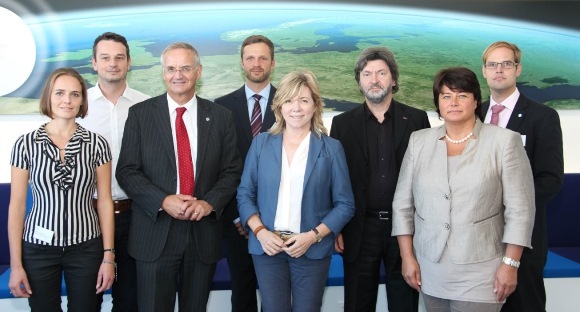 |
From right to left: Kai Rose (Deputy Node Director of EIT ICT Labs Germany), Sabine Verheyen MEP, Joachim Zeller MEP, Pilar del Castillo MEP, Erik Neumann (Software Campus), Heinrich Arnold (Senior Vice President Innovation & Laboratories, Head of T- Labs and Chairman of German Node Steering Committee), Lambert van Nistelrooij MEP and Kathrin Eichler, Software Campus participant.
Nokia Berlin Lab
The EIF Delegation concluded their official programme with a meeting and tour of facilities at the Nokia Berlin Lab. There they had the opportunity to exchange of views with senior representatives about what factors are contributing to Berlin’s increasing success as an EU technology hub. An official from the City of Berlin was also present.
The MEPs also took the chance to ask questions about Nokia’s recent acquisition by Microsoft. The highlight of the discussion was the presentation of the leading service being developed by Nokia in the Berlin Lab: ‘Here’. Nokia’s mapping service ‘Here’ serves 4 out of 5 in-car navigation systems in North America and Europe, and will continue to be Nokia’s product. If we could define Facebook a social cloud, Amazon a retail cloud and Google a search cloud, ‘Here’ would be a localization cloud, with innovative features that are key for customers’ mobility.
The Long Night of Start-ups, with its exciting buzz and testimonials by start-up CEOs and industry CEOs, was an interesting and entertaining experience – the perfect way to close this EIF tour in Berlin.



